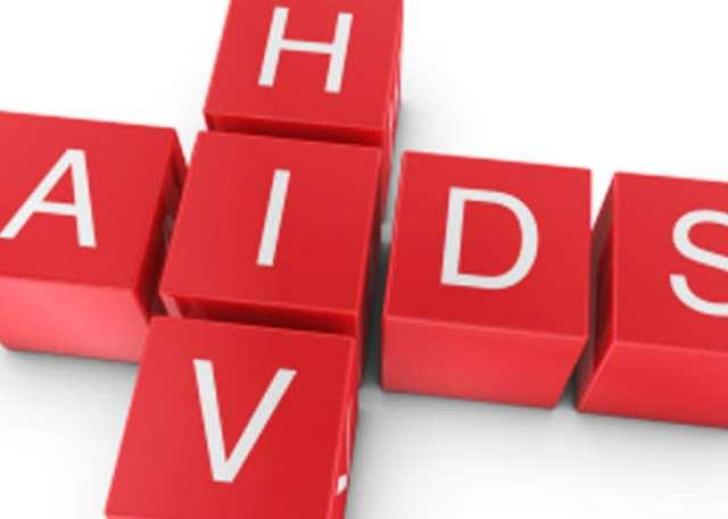News / National
Armed forces and HIV infections
12 Sep 2025 at 15:32hrs |
4 Views

Soldiers are often viewed as the embodiment of strength, discipline, and resilience. They endure grueling training, withstand physical hardship, and face battlefields where survival hangs by a thread. But despite this image of invincibility, soldiers are still human — vulnerable not only to bullets and bombs, but also to illnesses such as malaria and HIV/AIDS.
There are countless stories that highlight this reality. In one account, a soldier survived a fierce battle after being parachuted into what seemed like friendly territory but turned out to be enemy ground. He was the lone survivor, only to later succumb not to enemy fire, but to malaria. Such stories underscore a sobering truth: soldiers are not immune to life's frailties.
Among the most affected by the HIV/AIDS pandemic in Africa have been members of the armed forces, alongside teachers, police officers, and other workers. Soldiers fall in love, marry, have children, and engage in relationships like anyone else. Many who have died in combat have been found with letters and photos of loved ones tucked close to their hearts.
Yet, the very nature of military service exposes soldiers to heightened risks. Long periods away from home, deployments to foreign missions, or life inside barracks can fuel loneliness and temptation. Young recruits, often single and inexperienced, are particularly vulnerable. During training, exaggerated tales about sex circulate, and once soldiers complete their pass-out parade, many seek to test those stories — sometimes with devastating consequences. First encounters with commercial sex workers, often without protection, have led to infections that cut short promising lives.
Older, married soldiers face their own challenges. Extended absences can strain marriages, leaving both partners open to infidelity and increased risk of infection. The lure of transactional sex is compounded by the availability of seduction and enhancement concoctions sold in urban centres, all feeding into a culture of risky sexual behaviour.
The solution lies not in denying soldiers their humanity, but in equipping them with knowledge and responsibility. Regular HIV/AIDS awareness programmes in barracks, combined with education on safe sex, responsible courtship, and the value of stable marriage, can go a long way. Efforts to allow soldiers to live with their families where possible would also reduce risks associated with prolonged separation.
Sex has often been described in the language of war — conquest, domination, and even violence — but unlike combat, the battlefield of HIV/AIDS is one soldiers cannot win with brute force. They need awareness, discipline, and responsibility. Protecting those who protect the nation means recognising that strength is not just about physical endurance, but also about making informed, responsible choices.
There are countless stories that highlight this reality. In one account, a soldier survived a fierce battle after being parachuted into what seemed like friendly territory but turned out to be enemy ground. He was the lone survivor, only to later succumb not to enemy fire, but to malaria. Such stories underscore a sobering truth: soldiers are not immune to life's frailties.
Among the most affected by the HIV/AIDS pandemic in Africa have been members of the armed forces, alongside teachers, police officers, and other workers. Soldiers fall in love, marry, have children, and engage in relationships like anyone else. Many who have died in combat have been found with letters and photos of loved ones tucked close to their hearts.
Yet, the very nature of military service exposes soldiers to heightened risks. Long periods away from home, deployments to foreign missions, or life inside barracks can fuel loneliness and temptation. Young recruits, often single and inexperienced, are particularly vulnerable. During training, exaggerated tales about sex circulate, and once soldiers complete their pass-out parade, many seek to test those stories — sometimes with devastating consequences. First encounters with commercial sex workers, often without protection, have led to infections that cut short promising lives.
Older, married soldiers face their own challenges. Extended absences can strain marriages, leaving both partners open to infidelity and increased risk of infection. The lure of transactional sex is compounded by the availability of seduction and enhancement concoctions sold in urban centres, all feeding into a culture of risky sexual behaviour.
The solution lies not in denying soldiers their humanity, but in equipping them with knowledge and responsibility. Regular HIV/AIDS awareness programmes in barracks, combined with education on safe sex, responsible courtship, and the value of stable marriage, can go a long way. Efforts to allow soldiers to live with their families where possible would also reduce risks associated with prolonged separation.
Sex has often been described in the language of war — conquest, domination, and even violence — but unlike combat, the battlefield of HIV/AIDS is one soldiers cannot win with brute force. They need awareness, discipline, and responsibility. Protecting those who protect the nation means recognising that strength is not just about physical endurance, but also about making informed, responsible choices.
Source - Midweek Watch
Join the discussion
Loading comments…





























